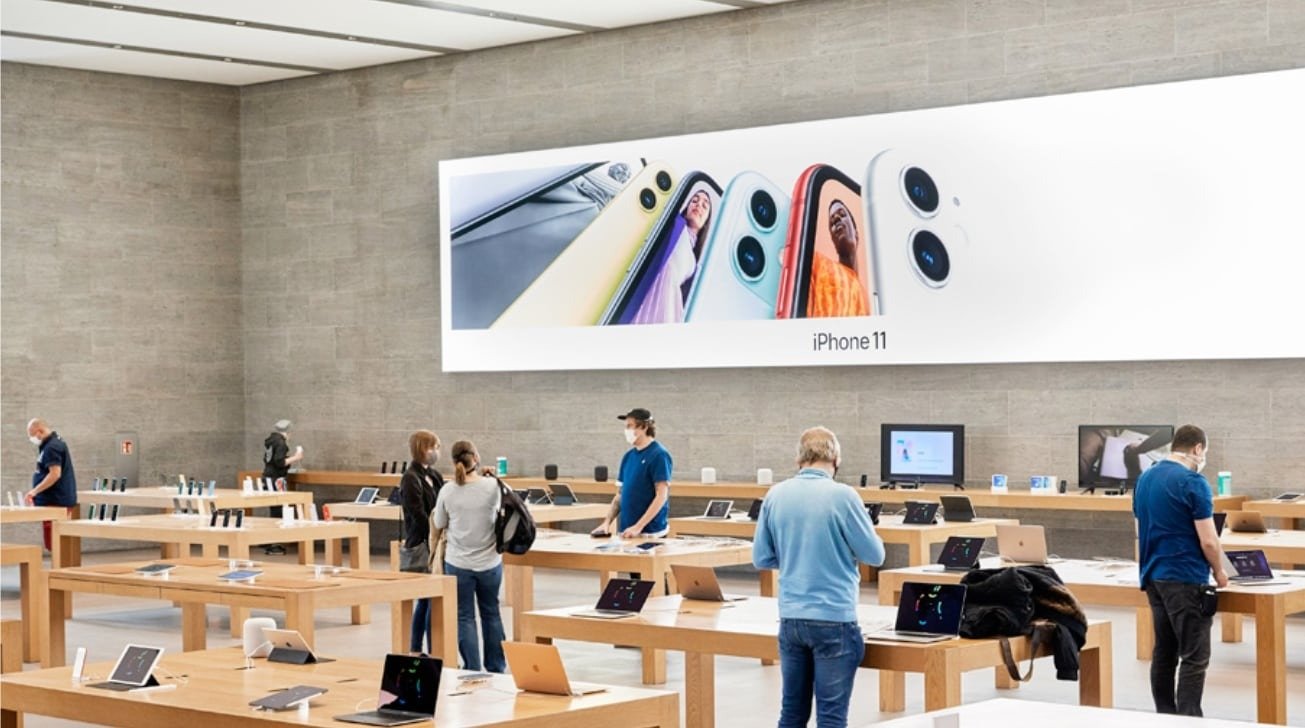As pandemic restriction ease, Apple will reportedly test a hybrid work model that includes both in-store and work-from-home arrangements for retail employees.
The Cupertino tech giant will test a pilot program called "Retail Flex" later in 2021, Bloomberg reported Thursday. The arrangement will allow retail staffers to work some weeks at brick-and-mortar locations, and other weeks completely remotely.
When they're working at home, retail employees will handle customer service, online sales, and technical support. The move acknowledges that many consumers still prefer online shopping to in-store retail, even as vaccination rates and economic re-openings increase around the world.
Retail workers will move between in-store and remote roles depending on brick-and-mortar demand versus online shopping demand in a particular period, sources familiar with the matter told Bloomberg.
The first batch of participants in the pilot program will test out the "Retail Flex" model for at least six months. Apple is planning to ramp up the arrangements from September to December, when new iPhone, iPad, Apple Watch, AirPods, and other devices are released.
In June, Apple retail chief Deirdre O'Brien said that she doesn't expect a "major shift" to Apple's retail strategy as the global health crisis eased.
Apple reopened all of its retail stores in June after a series of coronavirus-related closures. In some parts of the U.S., the company has also dropped pandemic-era safety requirements — such as mask wearing — at its retail locations.
Earlier in 2021, Apple announced a plan for non-retail employees to return to work for several days of the week starting in September. Per the plan, in-office work is optional on Wednesdays and Fridays for most staff.
Keep up with everything Apple in the weekly AppleInsider Podcast — and get a fast news update from AppleInsider Daily. Just say, "Hey, Siri," to your HomePod mini and ask for these podcasts, and our latest HomeKit Insider episode too.
If you want an ad-free main AppleInsider Podcast experience, you can support the AppleInsider podcast by subscribing for $5 per month through Apple's Podcasts app, or via Patreon if you prefer any other podcast player.
 Mike Peterson
Mike Peterson







-m.jpg)






 Brian Patterson
Brian Patterson
 Charles Martin
Charles Martin


 Malcolm Owen
Malcolm Owen
 William Gallagher
William Gallagher
 Christine McKee
Christine McKee
 Marko Zivkovic
Marko Zivkovic









5 Comments
My dream is to buy only at the apple store!
Where I live there are no Apple Stores, but the official retailer has prices that are always much higher than other resellers. I guess they think they’re privileged and can charge more.